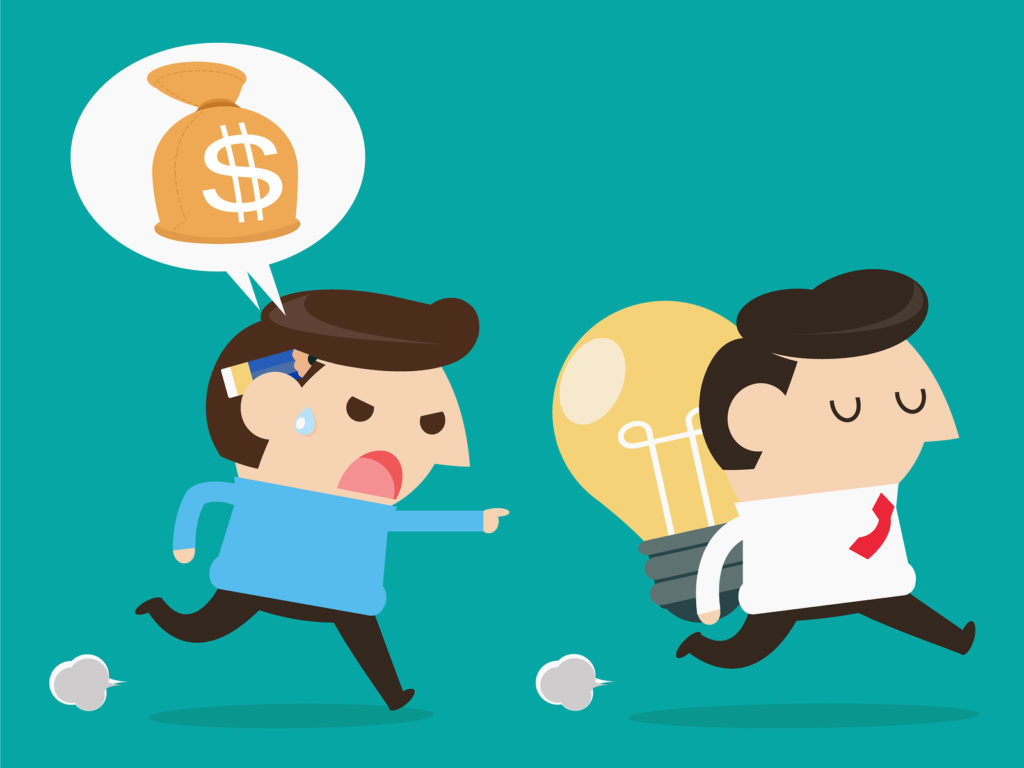Communications
What to Do If Someone Plagiarizes Your Work Online
By Emma Siemasko on February 23, 2015
As a talented creative, you're going to get your work stolen.
Surprise! The world isn't fair. There are many types of plagiarism, and you're likely to experience some of them online.
When someone plagiarizes your work, your stomach drops, your blood boils, and your brain gets angry. The first time it happened to me, I started smashing my fists on my desk and frantically searching Google for an answer. I was ready to put the perpetrator in jail.
But, actually, when someone plagiarizes your work, there's usually a much simpler answer: do nothing.
It sounds crazy, but most of the time it isn't worthwhile to track down the person trying to pass off your work as his or her own. Today, I'll explain why that's the case, and describe the steps you should take if you believe a truly heinous content crime has been committed.
Don't Freak Out
Seriously. I know you want to call your mom, scream to your boss, and travel through the computer screen toward the evil person who did this to you, but it's not worth the energy. It might not even be plagiarism. Rather than freaking out, take a deep breath and figure out if your work has actually been stolen. Purdue's Online Writing Lab (better  known as OWL) has some guidelines that can help you determine whether or not someone's plagiarized your work.
known as OWL) has some guidelines that can help you determine whether or not someone's plagiarized your work.
To calm down, ask yourself:
- Has this person simply scraped my content and republished it as his or her own?
- Has he or she provided a link to the original source?
- Does it seem like an honest mistake, or something deliberate? Could my mom have made this mistake by accident?
- Is my name or my company name anywhere on the page?
If you're still angry after asking yourself these questions, it's time to figure out if it's truly worth dealing with.
Is It Worth Addressing?
Before you start your rampage through the office, figure out if it's worth the trouble. Send the original piece and the plagiarized version to a few trusted friends or colleagues. Sometimes we get so sensitive when we create something that we're unable to look at the situation objectively. Friends and colleagues will be able to tell you if a situation is truly fishy, and their input will help you decide how to proceed. Check your company guidelines as well-if you're writing for a company's website, it may already have a plagiarism policy in place.
If It's Bad, Start a Conversation
Oftentimes, what seems like plagiarism is a simple mistake that can be fixed with a conversation. It's usually easy to find the email address or Twitter handle of the person who took your work. When you email him or her, don't be accusatory or imply that you're taking the issue to court. If the plagiarism is very obvious (for example, an entire blog post), then you can ask them to take it down or provide a link back to the original source. If they've only lifted a paragraph or two, or paraphrased in a suspicious way, then explain that you've noticed the two pieces were similar, and ask the writer if he or she would be willing to credit you with the idea. Usually, the other party will cooperate. Some marketers aren't even aware that online plagiarism isn't allowed!
Send a Cease and Desist Letter
If contacting the writer doesn't work, you can always send a cease and desist letter. To do this, ask the person to take down the plagiarized content. Make sure to include a deadline and explain what the consequences will be if they don't do what you've asked (for example, taking the writer to court). Usually, this strategy will work. Once you introduce legal trouble, individuals and companies are quick to comply.
For more information on copyright laws, visit the US Copyright Office online. Note that the writer of the content, not the publisher, is responsible for dealing with types of plagiarism.
Establish Precautions to Ensure This Doesn't Happen Again
There isn't a foolproof way to prevent people from stealing content, but there are a few things you can do to ensure this problem doesn't happen again:
- Google allows you to file a DMCA complaint. This lets Google know what someone's doing isn't cool. Be careful with this strategy: If it isn't plagiarism, then you'll be the one in big trouble.
- Enter your blog posts in Google Alerts so you can immediately detect if an article has been published.
- Use internal linking. If you link to other pages on your site in a blog post or article, then it will be more difficult for someone to scrape your work.
Remember to Stay Calm
In most cases, it will be obvious that an original post came from you on an established site. It's very rare that someone who is plagiarizing your work is going to outdo you. That's why I recommend keeping your cool and reacting calmly before trying to sue someone. I'd love to hear what you think about types of plagiarism, though. Do you think it's a good idea to do nothing? Please share.
For more tips like these, subscribe to the Content Standard Newsletter. They'll be delivered right to your inbox.

